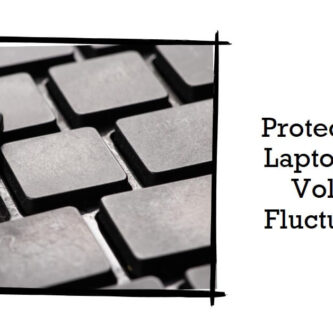If you’ve ever plugged in an extension cord and heard a buzzing sound, you may be wondering what’s causing it.
The most common cause of buzzing in extension cords is electrical arcing. This occurs when electricity jumps between two metal contacts, creating a buzzing sound as it does so.
Arcing can happen for a variety of reasons, including loose connections, frayed wires, and damaged insulation.
In some cases, the buzzing may also be caused by a ground fault or an overload in the circuit.
Is Buzzing in Extension Cords Dangerous?
While buzzing in extension cords may be a nuisance, it’s not always a cause for alarm. In many cases, the buzzing is simply a sign that the cord needs to be repaired or replaced.
However, in some cases, buzzing can be a sign of a more serious problem, such as a short circuit or a ground fault. These issues can pose a fire hazard and should be addressed immediately.
It’s important to note that if you ever smell burning or notice smoke coming from your extension cord, you should unplug it immediately and call an electrician.
How to Identify the Source of the Buzzing in Your Extension Cord
If you’re experiencing buzzing in your extension cord, the first step is to identify the source of the problem. Here are a few things to check:
- Check for loose connections: Make sure that all plugs and connectors are firmly in place.
- Inspect the cord for damage: Look for frayed wires or damaged insulation.
- Check the load: If you’re using the extension cord to power a heavy appliance or tool, it may be overloading the circuit.
If you’re unable to identify the source of the buzzing, it’s best to err on the side of caution and replace the cord.
Common Mistakes That Lead to Buzzing in Extension Cords
There are several common mistakes that people make when using extension cords that can lead to buzzing. Here are a few to watch out for:
- Overloading the circuit: Plugging too many devices into one outlet can overload the circuit and cause buzzing.
- Using a damaged cord: If your extension cord has frayed wires or damaged insulation, it can cause arcing and buzzing.
- Using an indoor cord outdoors: Indoor extension cords are not designed for outdoor use and can be damaged by moisture or other elements.
By avoiding these mistakes, you can reduce the likelihood of buzzing in your extension cords.
Tips for Preventing Buzzing in Your Extension Cords
Here are a few tips for preventing buzzing in your extension cords:
- Use the right cord: Make sure you’re using a cord that is rated for the devices you’re powering and the environment you’re using it in.
- Inspect your cords regularly: Check your cords for damage, frayed wires, and loose connections on a regular basis.
- Don’t overload circuits: Be mindful of how many devices you’re plugging into a single outlet, and use power strips or surge protectors as needed.
Following these tips can help keep your extension cords in good condition and prevent buzzing.
When to Replace Your Buzzing Extension Cord
If you’ve identified the source of the buzzing and it’s due to a damaged or faulty cord, it’s time to replace it.
Using a damaged cord can be dangerous and pose a fire hazard. Look for a replacement cord that is rated for the devices you’re powering and the environment you’re using it in. Read also my article when to replace extension cords
Can You Fix a Buzzing Extension Cord?
If the buzzing is caused by a loose connection, it may be possible to fix it yourself. Here’s how to do it:
- Unplug the cord: Before you attempt any repairs, make sure the cord is unplugged and completely disconnected from the power source.
- Identify the loose connection: Inspect the cord and connectors to find the loose connection. Wiggle the cord and check for any movement or play in the plugs.
- Tighten the connection: Use pliers or a screwdriver to tighten any loose screws or nuts on the plugs or connectors. If the plug is damaged, you may need to replace it.
- Test the cord: After tightening the connection, plug the cord back in and test it to see if the buzzing has stopped. If the buzzing persists, it’s time to replace the cord.
It’s important to note that if you’re not comfortable making the repair yourself or if the buzzing is caused by a more serious issue, it’s best to call in a professional electrician.
The Role of Voltage and Amperage in Buzzing Extension Cords
Voltage and amperage are important factors to consider when using extension cords.
Voltage refers to the amount of electrical pressure in the circuit, while amperage refers to the amount of electrical current flowing through the circuit.
Using an extension cord with a lower voltage or amperage rating than the device you’re powering can cause the cord to overheat and buzz.
Always use a cord that is rated for the voltage and amperage requirements of your device.
How to Safely Use Extension Cords to Avoid Buzzing
Here are a few tips for safely using extension cords to avoid buzzing:
- Choose the right cord: Make sure you’re using a cord that is rated for the voltage and amperage requirements of your device.
- Don’t daisy-chain cords: Avoid plugging one extension cord into another to reach a farther outlet. This can cause an overload and lead to buzzing or even a fire.
- Keep cords away from heat sources: Make sure your cords are not in contact with hot surfaces or exposed to direct sunlight.
- Don’t run cords under carpets or rugs: This can damage the cord and create a tripping hazard.
Alternatives to Using Extension Cords When Buzzing Persists
If you’ve tried all of the above tips and your extension cord is still buzzing, it may be time to consider alternatives. Here are a few options to explore:
- Use a power strip: A power strip can provide multiple outlets without the need for an extension cord.
- Install additional outlets: If you frequently need to use extension cords in a particular area, consider installing additional outlets to eliminate the need for cords altogether.
- Use a longer cord: If you’re using a cord to power a device that is far from an outlet, consider using a longer cord that is rated for the voltage and amperage requirements of your device.
By exploring these alternatives, you can find a safer and more reliable solution to power your devices.
Conclusion
Buzzing in extension cords can be a warning sign of a potential electrical problem. By identifying the source of the buzzing and taking the appropriate steps to prevent it, you can ensure that your extension cords are safe and reliable.
Remember to always choose the right cord for the job, inspect your cords regularly for damage, and call in a professional electrician if you’re unsure about making any repairs.


